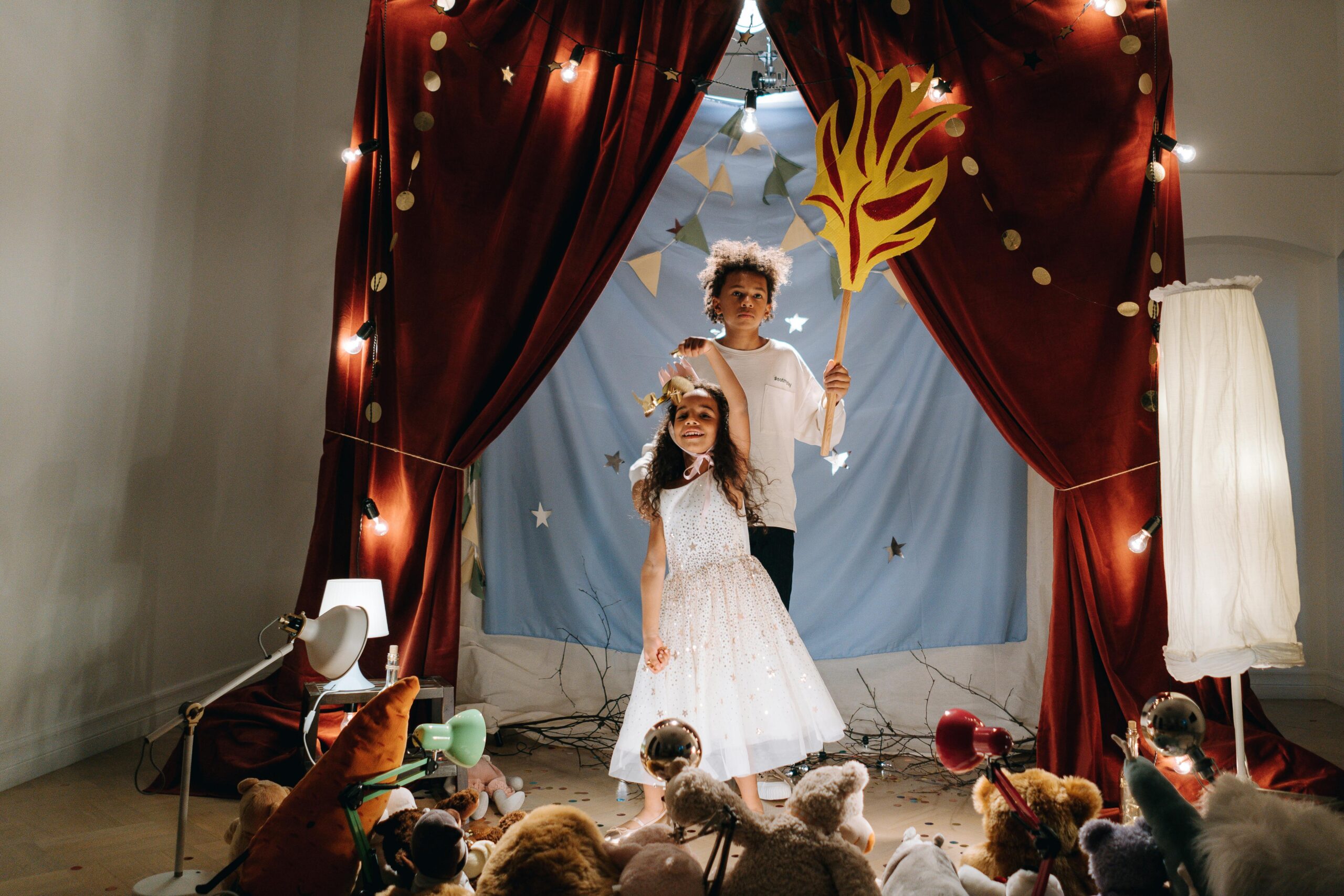Dramatic Play: Unlocking Creativity and Growth in Your Child

Dramatic play, also known as pretend or role play, is a powerful way children express themselves and make sense of the world around them. For parents, encouraging dramatic play opens doors to their child’s imagination, communication skills, and emotional development. Whether your child is playing doctor, chef, or superhero, these moments of make-believe are essential building blocks for lifelong learning.
1. What is Dramatic Play?
Dramatic play is when children imitate real-life roles and scenarios through imaginative play. Unlike simple play, dramatic play involves acting out stories, roles, and social situations. It differs from free play by adding layers of storytelling and character, turning ordinary objects into props — a stick becomes a magic wand, a cardboard box a spaceship. This type of play usually peaks between toddler and preschool years but remains vital throughout childhood.
2. The Benefits of Dramatic Play for Children
Dramatic play supports multiple areas of development:
- Cognitive Growth: It sparks imagination, encourages problem-solving, and helps children understand cause and effect.
- Social and Emotional Skills: Through role-playing, children practice empathy, cooperation, and conflict resolution. They explore feelings and learn to see situations from others’ perspectives.
- Language Development: Pretend play expands vocabulary and conversational skills as children create dialogue and narratives.
- Physical Development: Activities involved often enhance fine and gross motor skills, such as dressing up or handling play kitchen tools.
3. How to Encourage Dramatic Play at Home
Creating a safe, inviting space is key. Use simple items like dress-up clothes, puppets, or household objects to fuel imagination. Avoid overly structured play — allow your child to lead the story. Join in occasionally to guide without dominating, asking open-ended questions like, “What happens next?” or “How does your character feel?”
4. Dramatic Play Ideas and Themes for Toddlers and Preschoolers
- Everyday Roles: Doctor, chef, teacher, firefighter, shopkeeper.
- Fantasy Themes: Superheroes, princesses, pirates, animals.
- Seasonal/Cultural: Holiday celebrations, traditional costumes, festivals.
- Creative Use of Household Items: Boxes for castles, pots for drums, scarves for costumes.
5. Dramatic Play and Language Development
Pretend play encourages children to experiment with new words, phrases, and sentence structures. It’s an informal yet rich language-learning environment. Narrating stories, negotiating roles, or simply chatting during play boosts confidence and fluency.
6. Overcoming Common Challenges
- Shy or Reluctant Children: Start small with familiar roles or toys and gradually encourage participation. Model play yourself to show how fun it can be.
- Sibling Play Conflicts: Set clear rules for sharing and turn-taking; sometimes parallel play is okay.
- Limited Space: Use portable kits, baskets of dress-up items, or create small play corners that can be packed away after use.
7. Setting Up Play Spaces for Dramatic Play
A designated play corner with easy access to props encourages frequent play. Use storage bins, shelves, or baskets to keep costumes and toys organized. If space is limited, portable kits that can be moved around are a great alternative.
FAQs About Dramatic Play
- Q1: What age is best for starting dramatic play?
Most children naturally start engaging in dramatic play around 18 months to 2 years, with interest growing through preschool years. - Q2: How can dramatic play help my child’s social skills?
It allows kids to practice sharing, empathy, negotiation, and cooperation in a low-stakes environment. - Q3: Can I join my child’s dramatic play?
Yes! Joining can encourage engagement and language use, but it’s important to let your child lead the story. - Q4: What if my child only wants to play alone?
Some children prefer solitary play, which is also healthy. Gently offer opportunities for cooperative play without pressure. - Q5: Are there specific toys needed for dramatic play?
No, everyday items and simple props often work best. Dress-up clothes, kitchen sets, or even household objects can inspire creative play.
